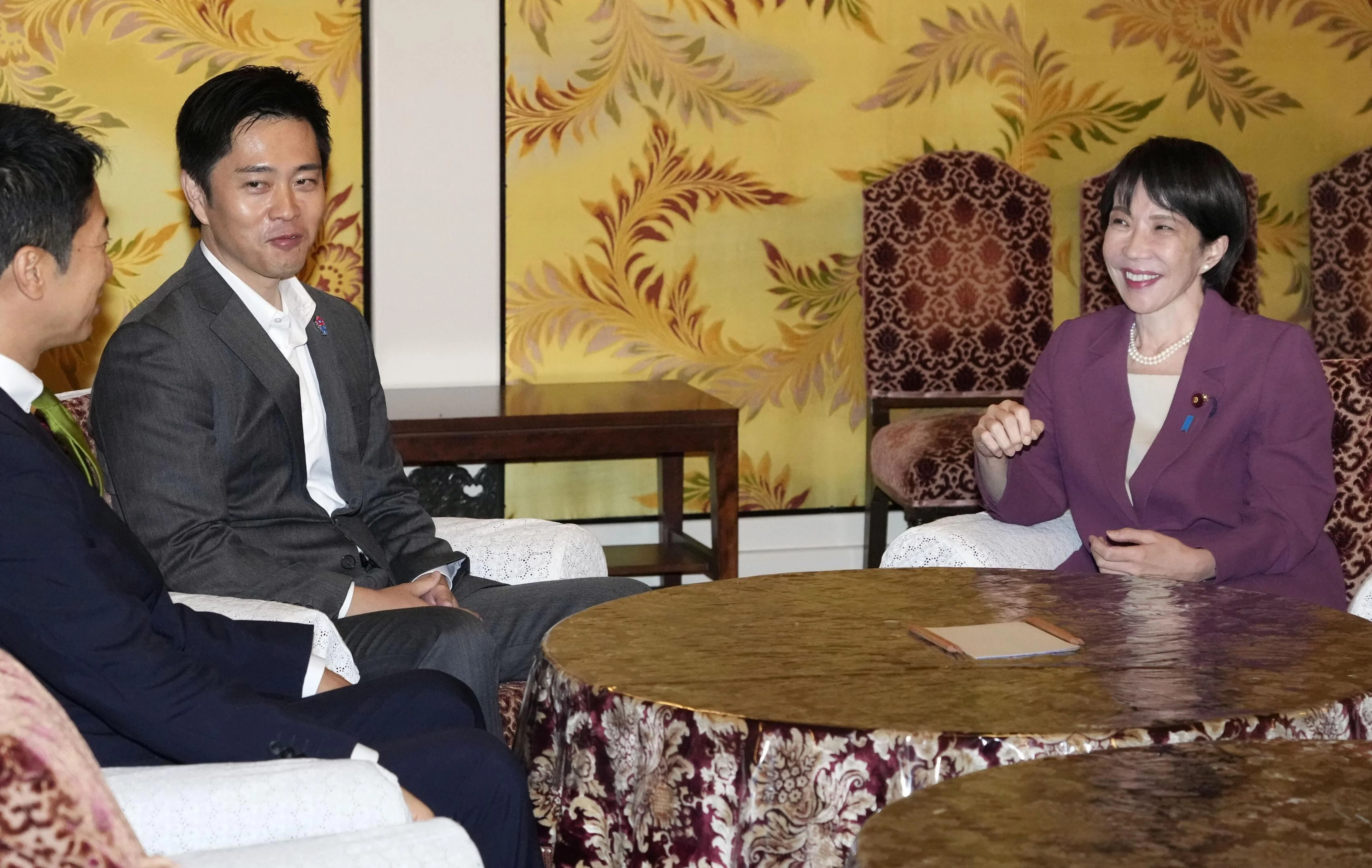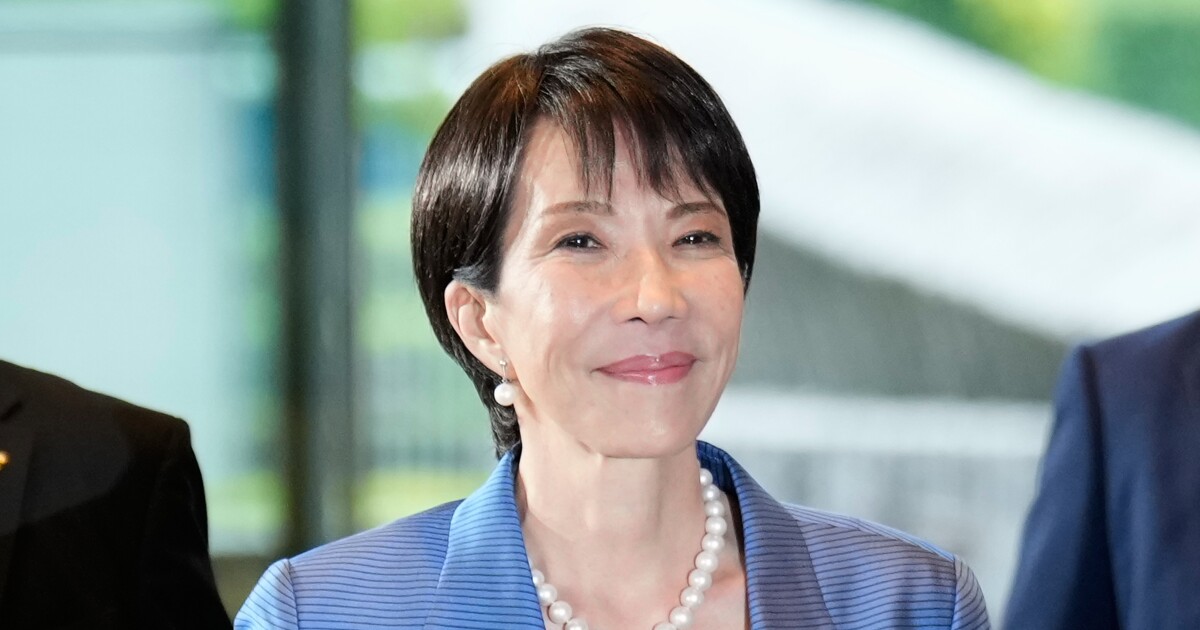Copyright scmp

Japan’s centre-right opposition Innovation Party (JIP) has thrown its support behind a controversial new ruling coalition led by Sanae Takaichi, paving the way for her to be elected the country’s first female prime minister on Tuesday despite concerns the alliance may quickly unravel. The surprise deal with the long-dominant Liberal Democratic Party, headed by Takaichi, marks a dramatic shift for the Osaka-based JIP. Instead of joining other opposition groups to challenge the LDP’s grip on power, it has chosen to help prop up a minority government under one of Japan’s most divisive conservative figures. Political analysts say the high-stakes gamble could backfire on the JIP. They warn that the JIP has been burned by the LDP before, and the smaller party may have been lured by vague promises, risking being sidelined and forced to walk away again. Leaders of the two parties met in Tokyo on Monday to put the finishing touches on their partnership. The JIP and LDP broadly agree on several issues, such as reducing the number of parliamentary seats and amending a constitutional article to state the Self-Defence Forces’ existence. They also concur on preserving the male lineage within the imperial family. In addition, the JIP is demanding an upgrade in Osaka’s status to the nation’s “second capital city”, reforms in social security and changes in the law to ban political donations from companies and organisations. Speaking after discussions on Saturday, the JIP’s co-leader Fumitake Fujita chaired a meeting of the party’s leadership in Osaka to discuss the proposed alliance. Fujita told reporters after the meeting: “There was not a single cautious, opposing or critical opinion.” He added that the “relationship of trust” between the two parties was growing stronger and expressed confidence that final details of their agreement would be ironed out before his scheduled meeting with Takaichi on Monday. Michael Cucek, a professor of Asian Studies at the Tokyo campus of Temple University, said: “This is the weirdest alliance that I have ever seen in Japanese politics. The JIP gets exactly nothing out of the agreement. “It gets no cabinet positions and no sub-cabinet posts and, as far as I can see, all it has obtained is a series of promises on policies, although the likelihood of the LDP honouring those promises is about zero.” The JIP had a short memory as it was “stiffed” by then prime minister Fumio Kishida, who promised to revise the political funds control law in 2024 in return for the party’s support in the Diet, only to change his mind later, Cucek said. It is once again pushing for the same legislative amendment, which the LDP has again promised to revise, according to Cucek. “That was not long ago, it got nothing from the LDP then, and I do not understand why it does not realise it is going to get nothing again this time.” It was not as if the party was not warned, Cucek pointed out. Before sitting down with the LDP in the middle of last week to explore the possibility of an alliance, the JIP had been in discussions with the two other leading opposition parties, the Democratic Party for the People and the Constitutional Democratic Party (CDP), about forming a three-way alliance to put up a rival prime minister candidate against Takaichi. CDP leader Yoshihiko Noda cautioned the JIP against siding with the LDP based on his experience, recounting his agreement in 2012 to a request from then-LDP leader Shinzo Abe to support the dissolution of the Diet to pave the way for an election in return for a reduction in the number of seats in the House of Representatives. After the election, Abe went back on the agreement. Toshimitsu Shigemura, a professor of politics and international relations at Tokyo’s Waseda University, believes the JIP is willing to overlook the LDP’s previous duplicity to achieve its longer-term goals. “The party wants to have experience of government and to show its supporters that it can have influence on the national level instead of just in Osaka,” he said. “In the future, the party wants to expand its base beyond Osaka, and it needs a track record in government.” The JIP is most optimistic that the LDP will go ahead with plans to reduce the number of seats in the Diet, possibly abolishing as many as 50 seats in the House of Representatives. It is a policy that would help both parties, as it would squeeze out the smallest parties, according to Shigemura. Komeito, the LDP’s coalition partner for 26 years until Takaichi was elected party leader last week, has already accused the proposed coalition of targeting it. Abolishing proportional representation seats would hurt Komeito at the ballot box, according to the party. A member of the party was quoted as telling the Yomiuri newspaper that the plan was “harassment” of the LDP’s former ally. Shigemura said there was little chance that the LDP would agree to do away with corporate donations, as those funds were the foundations of the party’s power. “The LDP is telling the JIP that it will study the matter … it will not ever actually do it.” If the LDP could string the JIP along over its promises, Shigemura said Takaichi’s administration could limp along for about 18 months, striking deals on individual pieces of legislation with other parties to give it a majority in the Diet. Cucek does not believe she has that long. “The LDP’s aim now is to get the budget for the next financial year approved,” he said. Once the budget has been approved, with the support of the JIP, Cucek anticipates the LDP returning to form and reneging on its promises. The question will be how long it takes the JIP to withdraw its backing from the government, leaving Takaichi in an untenable position and forcing her to call an election. “I think the LDP is simply trying to get through the next few months, but it is not ready for an election and I estimate it will lose as many as 30 per cent of its seats,” he said. The ruling party’s crisis is about one year away, according to Cucek, Cucek, with Japan set to return to a revolving door of prime ministers, each of whom may cling on to power for about a year.



